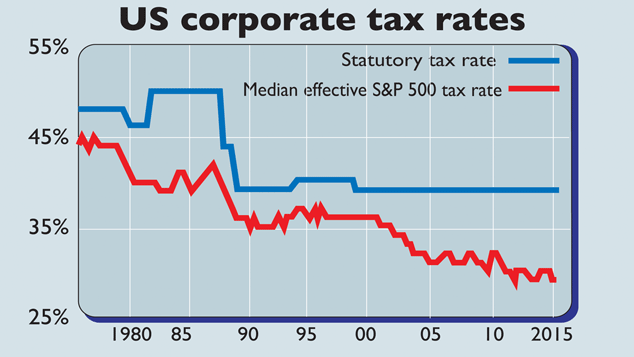
American companies “are more profitable than ever”, says Ben Levisohn at Barron’s – partly due to how little tax they are paying. The corporate tax rate in America is among the highest in the world, at 39%. But the actual rate paid by companies has fallen to 29%, from 35% in 1990. And some pay far less: cruise-ship operator Carnival has paid an average of just 1% of income in taxes in the past ten years.
Why the disparity? America only taxes companies on their domestic earnings, so a firm’s tax bill can legitimately be lowered by shifting profits overseas, where tax rates are lower. “Hence the relentless rise of tax planning as a core part of multinationals’ business plans,” says The Economist.
The OECD think tank estimates that this may be costing national exchequers “as much as $240bn a year, or 10% of global corporate income-tax receipts”. But now, a backlash may be imminent. “Every government is looking for revenue,” David Kostin of Goldman Sachs tells Barron’s. That poses “a risk to companies that have been paying low taxes”.
In particular, many firms have become experts at arbitraging the European Union’s tangle of different national tax regimes. But last week, the EU’s antitrust officials ruled that tax breaks that some EU members had granted to Fiat Chrysler, Starbucks and other multinationals constituted unfair state aid. These arrangements “shifted profits from one company to another in the same group, with no valid economic justification”, EU antitrust chief Margrethe Vestager told The Wall Street Journal.
The rulings showed that “artificial and complex methods endorsed by tax rulings cannot mask the actual profits of a company, which must be properly and fully taxed”. Now regulators are looking into hundreds of tax agreements across the EU, including investigations involving Apple in Ireland and Amazon in Luxembourg.
Although the firms involved say they have done nothing wrong, it’s clear that corporate tax havens “are gradually… heading for extinction”, says Edward Hadas on BreakingViews.com. Some firms are already changing their practices. Higher taxes will put margins under pressure and opportunities to cut costs are limited. Hence future earnings growth may be weaker than expected – which is likely to be bad news for the historically expensive US market.